Introduction
Can Pigeons Have Rabies: Pigeons, often considered a common sight in urban environments worldwide, have long been a subject of curiosity and concern when it comes to public health. One question that occasionally arises is whether pigeons can carry and transmit diseases such as rabies. Rabies is a viral infection that affects mammals, including humans, and is typically associated with wildlife like raccoons, bats, and skunks.
Pigeons can have rabies, examining their physiology, behaviors, and the scientific evidence surrounding this issue to gain a better understanding of the potential risks involved. While pigeons are indeed birds and not mammals, we will explore why they are generally considered unlikely hosts for rabies and the importance of continued vigilance in monitoring and addressing health concerns related to urban wildlife.
These birds have adapted remarkably well to urban environments, making them a common sight in parks, plazas, and streets. While pigeons hole are part of the urban landscape, questions occasionally arise about the potential health risks they might pose, including the question of whether pigeons can carry and transmit rabies. However, it is essential to examine the potential risk of pigeons carrying rabies to address public health concerns and dispel any misconceptions.
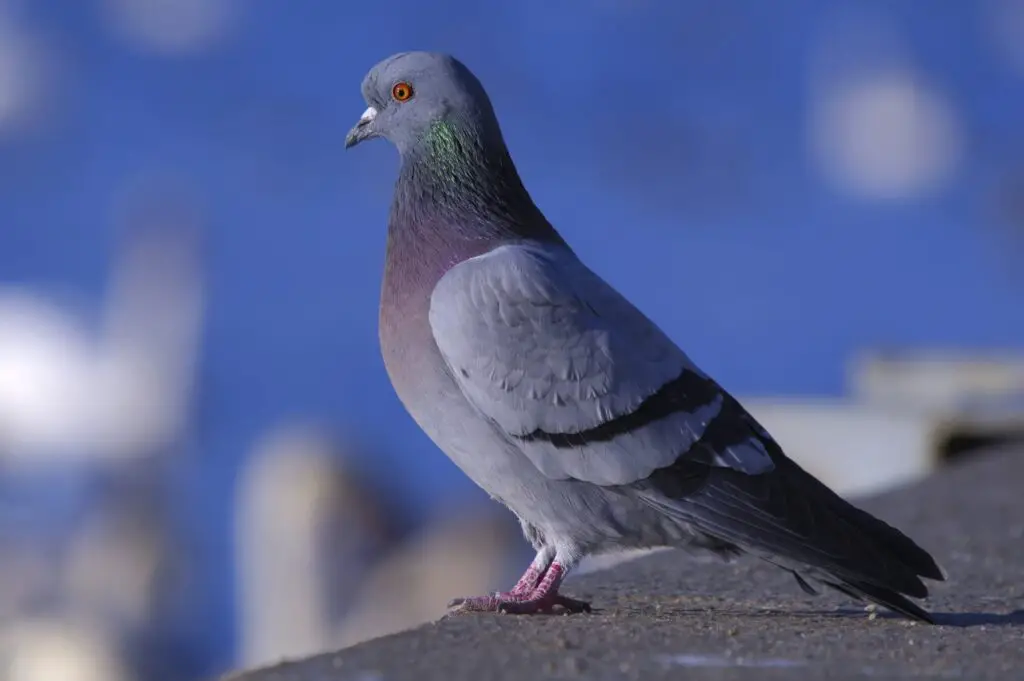
Does pigeon carry rabies?
Birds, snakes, and fish are not mammals, so they can´t get rabies and they can´t give it to you. In the United States today, about 93 of every 100 reported cases of rabies are in wild animals. Raccoons are the most common wild animal with rabies.
Pigeons, scientifically known as Columba livia domestica, are a species of bird that has been domesticated for thousands of years. Unlike mammals, which are the primary hosts for rabies, pigeons belong to the class Aves. This means that they have distinct physiological differences that set them apart from mammals, including their neurological makeup. Rabies virus tends to thrive in mammalian nervous tissue, making it unlikely to establish itself in avian nervous systems.
The behavior of pigeons is notably different from rabies-infected mammals. Rabies is often associated with aggressive and erratic behavior, including aggression towards humans and other animals. Pigeons, on the other hand, are not known to exhibit such behavior. They are social birds that typically coexist peacefully with humans, with no documented cases of aggressive or erratic conduct due to rabies infection.
While it’s theoretically possible for any warm-blooded animal to contract rabies, there is a lack of concrete scientific evidence suggesting pigeons as significant reservoirs or transmitters of the rabies virus. Cases of pigeons transmitting rabies to humans or other animals are exceptionally rare or non-existent. Rabies transmission typically occurs through the bite or scratch of an infected mammal, and pigeons do not possess the physical traits conducive to such transmission.
Can you get diseases from pigeons?
Diseases associated with pigeon droppings include Cryptococcosis, Histoplasmosis and Psittacosis. You can become infected with these diseases by breathing in the dust that is created when cleaning droppings. The risk of pigeon-related diseases is rare.
Histoplasmosis: One of the primary health concerns associated with pigeons is histoplasmosis. This fungal infection is caused by inhaling spores of the Histoplasma capsulatum fungus found in pigeon droppings. While the infection is not directly transmitted by pigeons themselves, their droppings, which may accumulate in urban areas, can harbor these spores. When dried feces are disturbed, the spores become airborne, and if inhaled, they can lead to respiratory symptoms, similar to flu or pneumonia. Proper respiratory protection and sanitation are essential when dealing with areas contaminated by pigeon droppings.
Cryptococcosis: Pigeon droppings can also carry the Cryptococcus neoformans fungus, which can cause cryptococcosis in humans. Similar to histoplasmosis, this infection typically occurs through inhalation of fungal spores. While rare, severe cases of cryptococcosis can affect the lungs and nervous system, particularly in individuals with weakened immune systems.
Salmonellosis: Pigeons, like many birds, can carry Salmonella bacteria in their feces. Contact with contaminated surfaces or consumption of food contaminated with pigeon droppings can lead to salmonellosis in humans. Symptoms include diarrhea, fever, and abdominal pain.
What happens if a pigeon bite you?
Do pigeons bite humans? Sure, but since they don’t have hookbills, their bites don’t hurt the way a parrot bite will. Pigeons and doves will usually try to grab and shake your hand in protest, but they don’t cause injury. And pigeons ARE NOT DIRTY, nor do they carry disease that can be transmitted to humans.
Pain and Injury: Pigeon beaks are relatively small and not designed for powerful bites. A pigeon bite is usually not very painful and rarely causes serious injury. However, the beak can cause minor scratches or puncture wounds, and the bite may become painful or infected if not properly cleaned and treated.
Infection Risk: The main concern after a pigeon bite is the risk of infection. Pigeons, like all birds, can carry bacteria in their mouths and on their beaks. If the skin is broken during a bite, these bacteria can potentially enter the wound and cause an infection. Common bacteria that may be present in a pigeon’s mouth include Staphylococcus and Streptococcus species.
Allergic Reactions: Some individuals may be allergic to proteins found in bird saliva. In such cases, a pigeon bite might trigger an allergic reaction, leading to symptoms like redness, swelling, itching, and hives around the bite area. An allergic reaction could range from mild to severe, so it’s crucial to monitor for any unusual symptoms.
Transmission of Zoonotic Diseases: While pigeons are not known for transmitting rabies, as mentioned in a previous article, there is a minimal risk of zoonotic diseases associated with birds. However, this risk is exceptionally low, and the chances of contracting a disease from a pigeon bite are remote.
Do pigeons have virus?
Avian Paramyxovirus type 1 in pigeons (PPMV1) is a viral infection that is present in most countries that can spread rapidly and cause high rates of pigeon illness and death.
Clean the Wound: Immediately wash the bite area with soap and warm water to remove any dirt, bacteria, or bird saliva. Use an antiseptic solution to disinfect the wound.
Apply an Antibiotic Ointment: Apply a topical antibiotic ointment to the wound to prevent infection. Cover it with a clean bandage.
Monitor for Infection: Keep an eye on the wound for signs of infection, such as increased redness, swelling, pain, or discharge. If any of these symptoms develop or worsen, consult a healthcare professional.
Seek Medical Attention: If the bite is deep, severe, or if you notice signs of an allergic reaction, consult a medical professional promptly. They can evaluate the wound and provide appropriate treatment, which may include antibiotics or tetanus prophylaxis.
Can people catch pigeon fever?
Even though pigeon fever isn’t considered contagious to humans, there are a few reports of humans getting sick from working with infected sheep and one of a veterinarian developing pneumonia, which may be associated with exposure to C. pseudotuberculosis.
Species-Specific Infection: Corynebacterium pseudotuberculosis, the bacterium responsible for pigeon fever, primarily infects equids, and humans are not considered a natural host for this pathogen.
Strong Immune System: Human immune systems are well-equipped to defend against most equine-specific pathogens, making it difficult for the bacterium to establish an infection in humans.
Hygiene Practices: Standard hygiene practices, such as thorough handwashing after handling horses or coming into contact with potentially contaminated materials, further reduce the risk of transmission.
Limited Human Cases: While exceedingly rare, isolated cases of pigeon fever in humans have been reported. These cases typically involve individuals with compromised immune systems or pre-existing health conditions that make them more susceptible to infections.
Can you get attacked by pigeons?
They can attack
Pigeons can be cheeky if they really fancy a bite of your sandwich but generally, they’ll stay out of our way. This is unless they feel their young is in danger. If a pigeon thinks you pose a risk to their offspring, they have been known to attack humans.
Territorial Behavior: Pigeons, like many bird species, can exhibit territorial behavior, particularly during the breeding season. They may become protective of their nesting sites and attempt to deter perceived threats, including humans, by displaying aggression.
Feeding Frenzies: Pigeons are opportunistic feeders and can become competitive when searching for food in urban environments. Large groups of pigeons may gather around food sources, and this heightened competition can sometimes result in aggressive behavior.
Nesting Protection: Pigeons may become defensive when they have eggs or chicks in their nests. They might perceive nearby humans as potential threats and exhibit protective behavior.
Human-Provoked Aggression: In some cases, human actions can provoke pigeons, leading to aggressive responses. Attempting to feed pigeons or invading their space can trigger defensive behavior.
Why is my pigeon biting my hand?
Birds are used to protecting their nests from intruders, so they may feel compelled to bite you if you put your hand in their cages. It is also common for birds to become protective during mating season. You can avoid territorial bites by taking your bird out of his cage before you clean or replenish his food.
Curiosity: Pigeons are naturally curious creatures, and they often use their beaks to explore their surroundings. When a pigeon pecks or nibbles at your hand, it may simply be investigating the textures, smells, or tastes it encounters.
Communication: Pigeons use various body language and vocalizations to communicate with their human caretakers. Sometimes, gentle nibbling or pecking can be a form of communication, signaling a desire for attention, food, or interaction.
Territorial Instinct: Pigeons can become territorial, especially if they have claimed a specific spot as their own, such as a perch or nesting area. If your hand comes too close to their claimed space, they may bite to defend it.
Fear or Stress: Pigeons may bite when they feel threatened, stressed, or frightened. This is a natural defense mechanism to ward off perceived threats.
Can pigeons cause lung disease?
Psittacosis is an infectious flu-like disease which spreads to humans from infected birds like pigeons. It is caused by the bacteria Chlamydia psittaci. Though psittacosis appears to be mild in nature, it causes illness and pneumonia or lung infection.
Socialization: Spend quality time with your pigeon to build trust and create a bond. This can reduce fear and anxiety, leading to less biting behavior.
Respect Personal Space: Be mindful of your pigeon’s personal space and boundaries. Avoid reaching into their cage or territory too abruptly, especially if they appear agitated.
Positive Reinforcement: Reward your pigeon with treats and praise for good behavior. Positive reinforcement can encourage desired actions while discouraging unwanted biting.
Observe Body Language: Learn to read your pigeon’s body language. If they show signs of stress or discomfort, give them space and avoid interactions until they are more at ease.
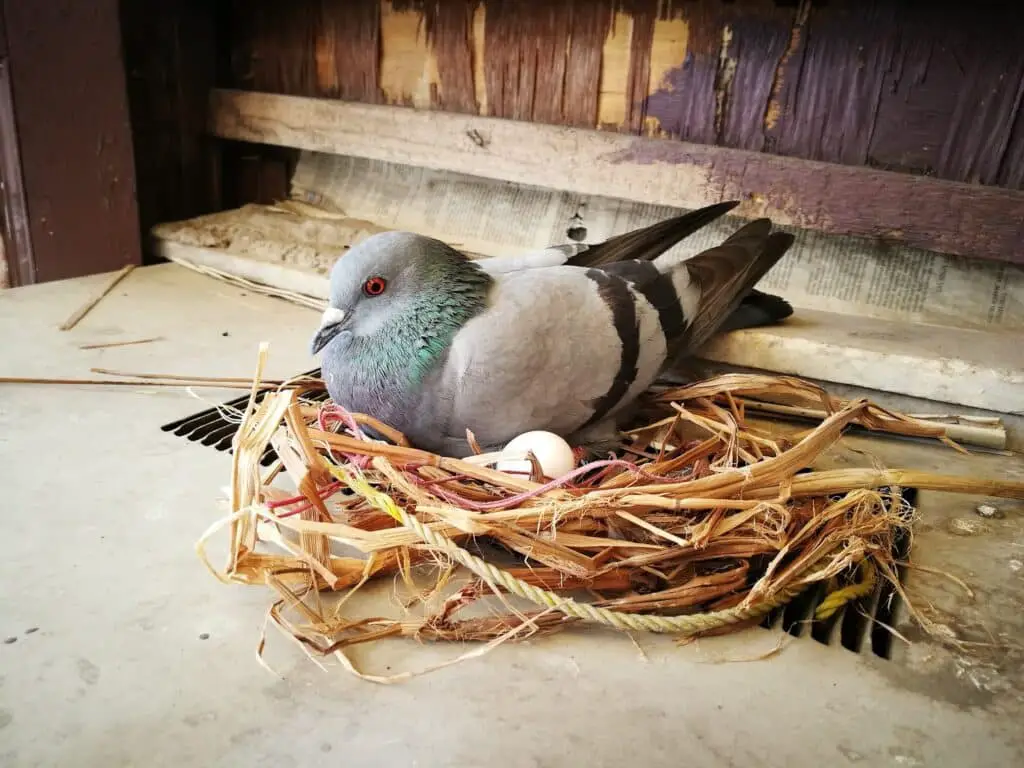
Conclusion
The risk of pigeons carrying and transmitting rabies is minimal, given their avian physiology and behavior. However, the broader context of public health demands ongoing monitoring and education regarding urban wildlife and potential disease transmission. By understanding the nature of these interactions, we can better manage and coexist with the diverse wildlife inhabiting our urban environments.
The importance of vigilance in public health and wildlife management. Though the risk of pigeons transmitting rabies is minimal, other zoonotic diseases may still pose a concern. Maintaining good hygiene practices when dealing with urban wildlife, including pigeons, remains essential to mitigate potential health risks.
Pigeons belong to a distinct avian group and have a different physiological makeup compared to mammals, which are the primary hosts for rabies. Rabies virus tends to thrive in mammalian nervous tissue, making it less likely to establish itself in the avian nervous system. Pigeons rabies are not known to exhibit the aggressive or erratic behavior often associated with rabies-infected mammals. Their social and migratory behaviors are vastly different, reducing the chances of close contact with humans.

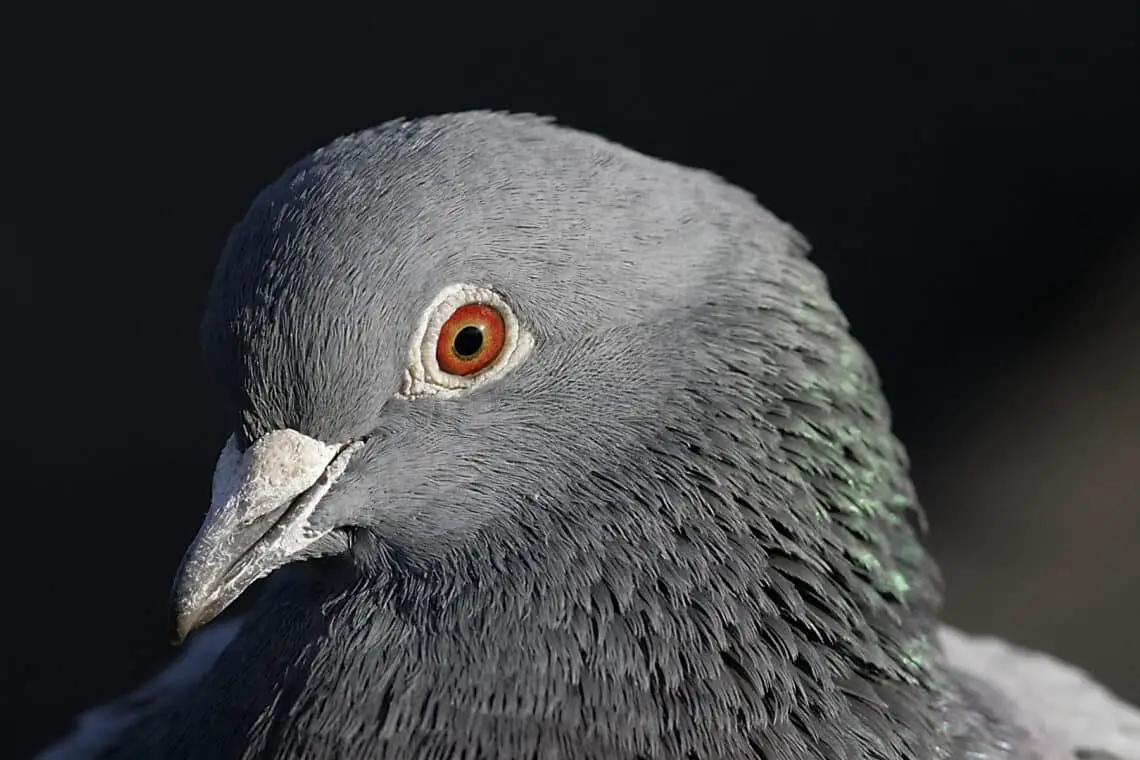
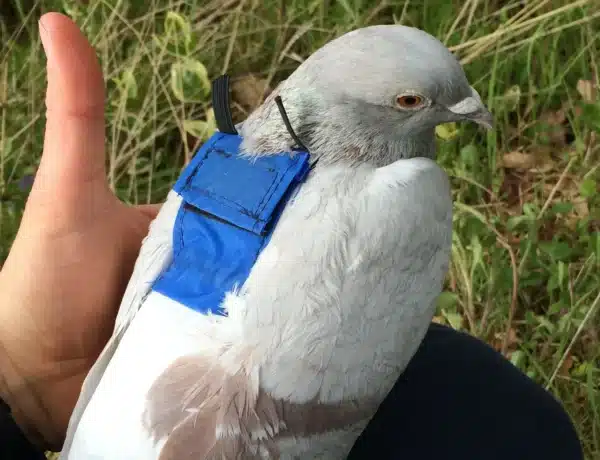
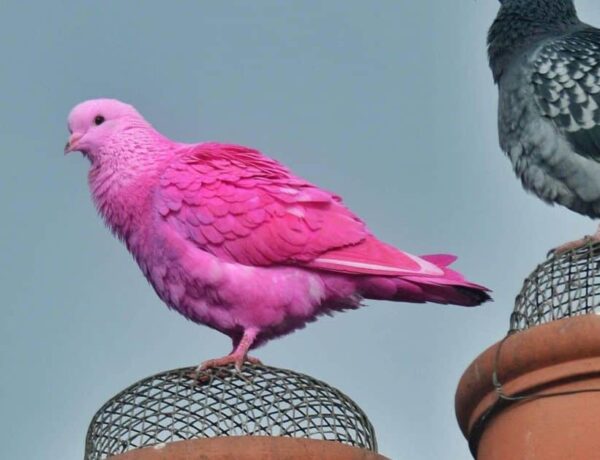
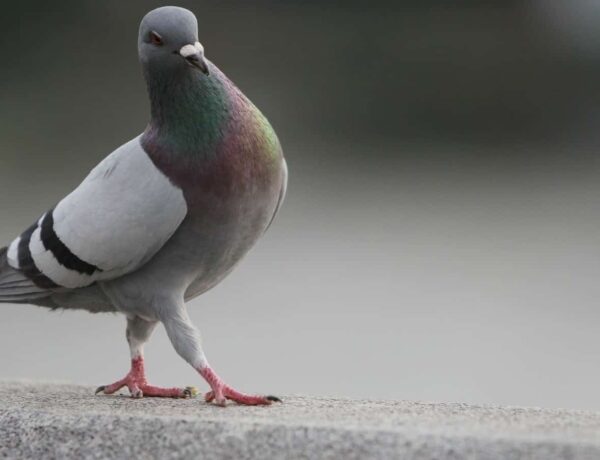
No Comments